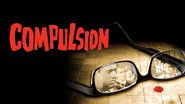leethomas-11621
Stands or falls by Welles' performance. It stands! Perfect casting all round. (viewed 9/16)
diomavro
I was mostly going through a youtube movie streak when I ran into this gem. The movie seems to be broken up into two parts, the first is an exploration of the motives and guilt of the two main characters who have committed an atrocity. Oddly enough for the horrific characters that they are, I found that I was not outright rooting for their fall which is quite an achievement in my eyes. Regardless, this part of the film is interesting in terms of character motifs but perhaps a little too linear in its uncovering.The second part of the film is when their lawyer, Orson Welles comes in to defend them. At first it seems very odd and bureaucratic as a procedure but ultimately pays off with a quite raw and dramatic court room scene at the end of the film which is probably the most powerful part of the movie.Regardless of how good the movie is, I would recommend this film just because of its structure, even though there is less of an emotional impact this way, I feel like it achieves something else. Instead of focusing on pulling us to identify or feel their sorrow we are invited to think critically about the paradoxical nature of the death penalty.
kittyvista
Orson Welles was known for pushing the envelope, and the movie Compulsion is no exception to this. Produced in the 1950s, the movie is the only representation made of the Leopold and Loeb case that correctly infers the relationship between the two protagonists was more than just friendly; in fact, Leopold and Loeb were gay lovers. It showed remarkable attention to detail as well, in that the dynamic between the two could have been written by an FBI criminal profiler whose expertise is in the pathology of sociopath pairings.Dean Stockwell does become the character the audience loves to hate - he drips of arrogance covered by a veneer of superficial charm. Dillman's character tends to be more pathetic in nature, but still not enough that the audience would see him as a "victim."E. G. Marshall is true to form as the district attorney intent on bringing these two to justice, and Orson Welles plays the atheistic and fairly cynical attorney hired to defend the pair. The touch of black humor in the end is when he states that if he believed in a God, he would say that Divine intervention was responsible for Sid Brooks finding the incriminating glasses (they had been partially buried in the sand) and for the police being able to trace them to Steiner.The movie is well worth viewing, especially for anyone who enjoys "true crime" stories - you'll get a charge comparing the real story to the way it is presented.
jfarms1956
This movie, Compulsion, is for the over 30 crowd. Dean Stockwell and Bradford Dillman play very unlovable characters and do it very well. Of course, Orson Welles, who is always great, he too, plays his character well. This movie is not for a relaxed evening of movie watching. This movie leaves one and gives one a very disturbed feeling. Compulsion evoked a great deal of negative emotion from me. However, I think that was the point of the movie to evoke strong emotion from the viewer. So in that point, it succeeds. Orson wells does a masterful job in the courtroom. There is no need to bother with popcorn in this movie since you can't eat much of it anyways watching this move. I give Compulsion four thumbs up. I am just glad that the movie is over.




